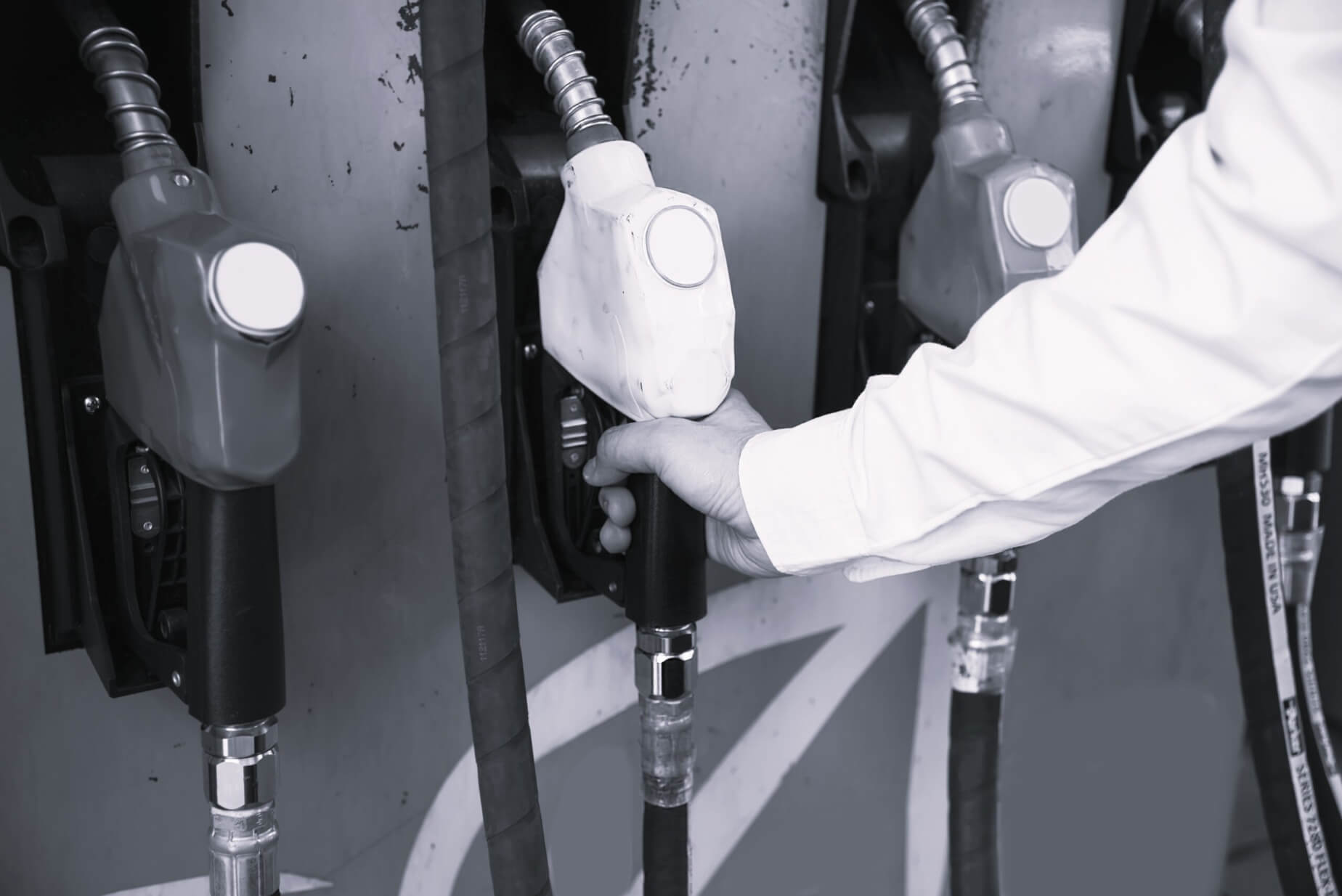How to Build a Fleet Management Budget: Tips & Strategies
Success in fleet management ultimately hinges on effective financial management. The fundamental rule for profitability is skillful money management, and a fleet budget is an essential determinant for well-run operations. It serves as a vital tool for managers to control expenses, set financial targets, and identify areas for improvement.
Effective fleet management simplifies operations, ensures compliance, enhances safety, and facilitates data-driven decision-making. Creating a budget can seem daunting, but fleet managers can ease the process, minimize complexities, and maximize the bottom line with a simple step-by-step plan.

In this guide, we will highlight some proven tips and strategies for crafting a successful fleet management budget. Let’s dig into it in detail:
What are Fleet Costs?
Fleet costs refer to the various expenses associated with managing and maintaining a fleet of vehicles. These costs are significant for businesses involving cars/trucks for transportation, delivery, construction, or maintenance. Keeping track of these costs can be challenging, especially when they span various departments, projects, and locations. In general, fleet costs can be broadly categorized into:
- Fixed costs, or overhead costs, stay the same even if your trucks are not moving. They are steady and predictable, making them easy to plan for in your budget. Examples include insurance premiums and facility lease payments.
- Variable costs, also called operating costs, change based on different factors. They can vary month-to-month due to changes in workload or economic conditions. The main variable costs are maintenance and fuel costs.
- Unexpected costs in fleet cost management are expenses that come up unexpectedly, like sudden repairs, accidents, fines, or legal fees. Sometimes, changes in rules or sudden spikes in fuel prices can also lead to unexpected costs.
- Besides these, fleet management also involves hidden expenses, such as downtime, driver turnover, compliance, and fuel inefficiency.
How Can Fleet Management Reduce Costs?
Technology plays an important role in 2024 regulatory changes in Fleet Management. As regulatory bodies emphasize the need for increased efficiency and safety, AI is becoming a game-changer. One of the notable trends for 2024 revolves around the integration of Artificial Intelligence (AI) in fleet management systems. Fleet managers should explore how AI can enhance their operations, from optimizing routes to predicting maintenance needs.
Fleet management can reduce costs by monitoring and evaluating vehicle and driver performance. Here are some practical ways to manage and reduce fleet fuel costs:
- Utilize telematics and fleet management software to assess vehicle health, driver behavior, and fleet performance.
- Implement safety measures and demonstrate responsible driving helps you save money on insurance.
- Ensure optimal asset utilization by managing the lifecycle of vehicles and designing preventive maintenance schedules.
- Monitor and improve fuel efficiency through better driving practices and efficient route planning. Proper usage of fleet management helps you to save money on your pump.
- Stay compliant with regulations to avoid fines and penalties.
Knowing how much fuel your vehicle uses helps you manage costs and improve driving habits. In addition to the critical methods mentioned earlier, fleet managers should utilize fuel-saving calculators designed to calculate associated costs.
How to Create a Fleet Management Budget?
Building a fleet management budget is not a hard nut to crack. You can quickly outline your upcoming year’s fleet budget by combining fleet data and past operational insights. Controlling costs while maintaining operational standards might be daunting, here’s a step-by-step guide to help you create a practical fleet management budget.
Set clear goals:
Identify cost reduction, fuel efficiency, and fleet expansion plans to make your fleet budget strategy. Make sure your budget aligns with these goals to support your fleet strategy. Setting clear goals and taking control of your fleet fuel usage can help guide the budgeting process. Above all, aim to develop a plan considering potential future changes for your company.
Conduct a Historical Expense Review:
Reviewing historical expenses involves thoroughly examining past financial data to understand spending patterns. The process includes identifying areas where you overspent and pinpointing cost-saving opportunities.
Analyzing at least one year of financial data is necessary for understanding seasonal variations and other trends that may impact the budget. When fleet managers dig into past expenses, they find useful info about how costs go up and down over different periods.
Forecast future costs:
One must accurately predict future costs by monitoring historical data and anticipating changes in fleet size, fuel usage, fuel prices, and regulations. Analyzing past data and predicting future expenses allows fleet managers to plan and allocate resources beforehand. It helps align the budget with the fleet’s actual needs and reduces the risk of financial uncertainty.
While you can’t control the cost of fuel, you can control how your fleet uses it. You can reduce your fuel expenses by implementing these strategies:
Adjust routes: Keeping drivers on quality road surfaces and making sure they are on the most fuel-efficient routes can reduce costs.
Monitor tires: Keeping tires properly on optimal condition inflated can improve vehicles’ fuel efficiency by an average of 0.6%, and up to 3%, according to the National Highway Traffic Safety Administration.
Repair oxygen sensors: Repairing or replacing a malfunctioning oxygen sensor can improve fuel efficiency by up to 40%, according to the U.S. Department of Energy. Set up maintenance reminders in your fleet management software system to remind technicians to inspect the sensor during PMS (preventive maintenance services).
Choose a budgeting method:
Consider tried-and-true techniques, such as incremental and zero-based budgeting, when choosing a budgeting method. The choice depends on fleet size, historical data availability, and management preferences.
Incremental budgeting adds a flat increase to the previous year’s expenses but might not encourage cost-cutting. Alternatively, zero-based budgeting involves justifying each expense item from scratch and promoting a thorough assessment to identify unnecessary costs.
Allocate budget to categories:
When allocating the budget for fleet management, one must categorize the overall fleet budget and align it with one’s goal. The strategies involve breaking down the budget into categories like fuel, maintenance, vehicle acquisition, insurance, etc.
Fleet managers should wisely allocate funds based on past spending, future plans, and strategic priorities. Above all, they must also keep some flexibility in the budget to accommodate unexpected expenses. It promotes a balanced and effective use of resources for fleet management.
Monitor and track progress:
Once you have chosen the preferred budgeting method and categorized the budget, regularly monitor your fleet’s performance and expenses against the budget. It involves periodically comparing actual costs with the budgeted amounts. Tools like fleet telematics and fuel estimator for your fleet operations help manage finances by monitoring expenses. Regular budget fleet management tracking helps figure out problems early.
Forecasting for Future Success
Fleet forecasting and analysis help fleet managers predict future operational needs and understand what types of vehicles their business needs in the short and long term. It helps anticipate and prepare for challenges like fuel price changes, vehicle maintenance, and regulatory requirements.
Accurate forecasting is essential for setting achievable budget goals. It improves decision-making, enhances cost control, and promotes overall financial stability in fleet budget management.
Budgeting Techniques:
Let’s discuss and compare the reliable budgeting plans and techniques that aid in predicting future success.
| Incremental Budgeting | Zero-based Budgeting Techniques |
| Adjustments made to previous year’s budget in increments, often using a set percentage. May not strongly encourage cost efficiency. | Involves justifying all expenses for each new period, starting from a “zero base.” Time-consuming but encourages thorough examination, potentially leading to greater cost savings. |
| Suitable for stable operations with predictable costs, where a straightforward adjustment provides a reasonable estimate. | Particularly beneficial when significant cost reduction or strategic resource reallocation is the goal. |
| Offers a quicker and simpler method. | Requires detailed analysis of each function based on its requirements within business parameters. |
| May not strongly promote cost efficiency as it builds on existing figures. | Promotes accountability, efficient resource use, and potential for greater cost savings. |
Monitoring and Adjusting Your Budget
Once you’ve got your fleet budget in place, keep an eye on how things are going regularly. Stick to the following adjustments for convenience:
- Regularly monitor your fleet expenses against the budget.
- Set specific review dates.
- Adjust the budget for changes in fleet needs (like when you get a new vehicle or perform more deliveries).
- Monitor key performance indicators (KPIs).
- Utilize budgeting tools like budgeting apps, spreadsheets, and fleet management systems to keep track automatically.
- Conduct periodic financial check-ins and annual reviews.
Best Practices for Fleet Budget Management
Adopting best practices in budget management is crucial to tackling challenges like fuel prices, maintenance costs, and regulations. It’s not just about cutting costs but making the fleet more efficient, sustainable, and aligned with organizational goals.
Following the best practices in fleet fuel management improves cost savings, operational efficiency, and fleet performance.
Leveraging Fleet Management Software:
Fleet management software, like telematics, simplifies budgeting. It tracks expenses, reports them accurately, and predicts future costs. It enhances budget management efficiency with high-tech tools like real-time tracking, efficient route planning, and driver management.
Benchmarking:
Benchmarking your budget against industry standards is like a performance check for your fleet. It helps find areas where you can improve by comparing your spending to what’s expected in the industry.
Industry reports, like those from NAFA or other fleet organizations, give you this valuable comparison data. It’s an intelligent way to ensure your budget is on track and in line with the best practices in the industry.
Creating a Contingency Fund:
A contingency fund acts as a financial safety net and ensures you’re prepared for unforeseen events like vehicle breakdowns or sudden maintenance needs. Set aside almost 10% of your total budget to calculate your contingency fund. This amount helps cover unexpected expenses like vehicle repairs.
Communication and collaboration:
Fleet managers must communicate clearly with drivers, mechanics, and management about budget goals and expectations. Regular team meetings, digital communication tools, and transparent reporting are effective strategies in fleet management.
For example, a fleet manager can conduct monthly meetings to discuss budget goals and share spending patterns with drivers and mechanics.
FAQs (Frequently Asked Questions)
How is fleet cost calculated?
You can calculate fleet costs by adding up operational expenses such as fuel, maintenance, insurance, depreciation, licensing, and taxes. Then, divide this total by the number of vehicles in your fleet. This way, you will get the average cost per vehicle.
What is the average cost per vehicle in a fleet management budget?
On average, a fleet management system will cost roughly $35 per month per vehicle or between $3,500 and $6,500 per year for a fleet of ten cars. These figures may vary based on the specific features, services, and customization options different fleet management providers offer.
How do fluctuating fuel prices impact a fleet management budget?
Fluctuating fuel prices can complicate fleet management budgets. Fleet managers may struggle. to plan and control costs, especially when they don’t have reliable tracking tools to monitor changes in fuel prices.
What role does driver behavior play in fleet management costs, and how can it be managed?
Driver behavior significantly impacts fleet management costs. Fleet managers can identify areas for improvement by using fuel management systems and monitoring habits like speeding, harsh acceleration, and idling. Educating drivers to adopt fuel-efficient practices helps reduce fuel consumption and lower fleet fuel costs.
Are there tax considerations to take into account when planning a fleet budget management?
Taxes on fleet operations may include fuel taxes, vehicle excise taxes, tolls, sales and use taxes, registration fees, and property taxes. The specific taxes vary by jurisdiction and can impact the overall budget for fleet management. However, businesses may also qualify for tax deductions on fleet-related expenses, providing potential cost-saving opportunities.
What is the impact of regulatory changes on fleet management budgets?
Regulatory changes can affect fleet management budgets by introducing new compliance costs. It includes upgrading to meet environmental standards or adjusting to tax law modifications. Fleet managers must stay updated and adjust budgets to ensure compliance while managing costs effectively.
How to integrate sustainability initiatives into the fleet management budget without significant cost increases?
You can incorporate sustainability initiatives by choosing fuel-efficient vehicles, optimizing routes, and exploring government incentives. Regular maintenance and using technology for live monitoring also facilitate eco-friendly practices without incurring significant expenses.
Conclusion
A well-structured fleet management budget is essential for the success and sustainability of any business with a vehicle fleet. We’ve delved into critical strategies, from fuel-efficient practices to innovative procurement and sustainability initiatives that aid in managing costs. Above all, we have emphasized how monitoring and forecasting your budget are crucial steps to avoid possible challenges and make wise decisions.
Contact us to simplify your fleet budget management process and make it hassle-free. Our professional team will address your questions and provide excellent solutions suitable for your fleet operations.
Fuel Logic also facilitates its audience, reducing their expenses and the hassles of going to a fuel station. You don’t even need to hire labor for loading and reloading. Order now and avail our delivery services at your doorstep. It makes your life easier by saving you from the hassle of going to fuel stations.





